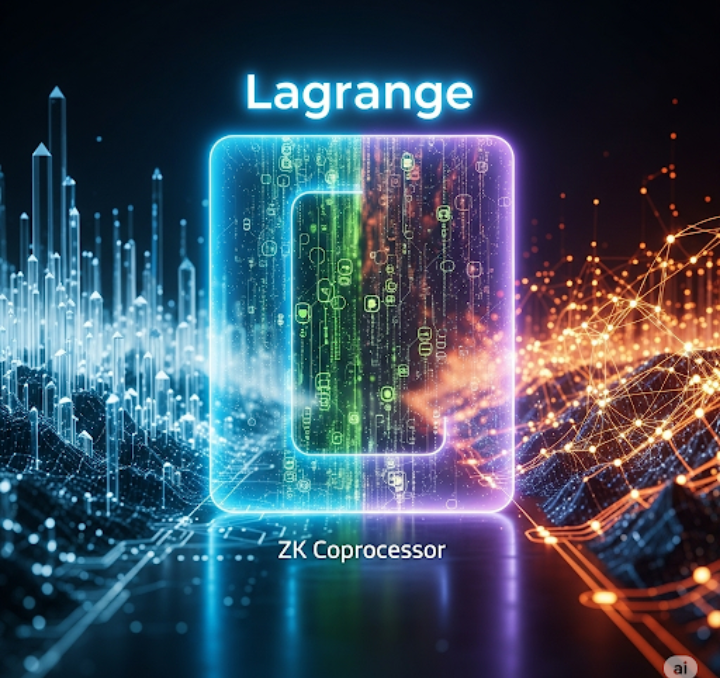Lagrange offers a ZK Coprocessor (ZK-співпроцесор), an innovative solution for decentralized applications (dApps) that allows them to securely perform computations off-chain. This significantly enhances speed, efficiency, and scalability without sacrificing decentralization and security. The ZK coprocessor allows dApps to access historical data, perform complex computations, and quickly interact with data from other blockchains. This opens up new possibilities for creating more complex and functional dApps.
What is the ZK coprocessor?
The ZK coprocessor can be imagined as a bridge 🌉 that connects logic executed off-chain with the protection and verification provided by the blockchain. Traditional off-chain solutions require a certain level of trust: either in a centralized server or in a group of validators. In contrast, the ZK coprocessor uses zero-knowledge proofs (ZK-proofs), allowing any blockchain to instantly and fully trust the results of computations performed off-chain. This eliminates the need for any traditional trust mechanisms.
How does the ZK coprocessor work?
The operation of the ZK coprocessor involves three main stages:
Off-chain execution: A user or dApp initiates computations that are performed on specialized off-chain nodes. These can be complex queries to databases, processing large volumes of data, or simulations.
ZK-proof generation: After performing computations, these nodes generate a cryptographic ZK-proof that confirms the computations were performed correctly, without disclosing any input data.
On-chain verification: This ZK-proof is sent to the blockchain, where a smart contract quickly and efficiently verifies it. Verification takes minimal time and requires minimal gas costs since the smart contract does not perform the computations itself, but only verifies the proof of their correctness.
Key advantages of the ZK coprocessor
The Lagrange ZK coprocessor provides a number of significant advantages:
Scalability: Enables computations that would be too expensive or slow for the blockchain, thereby significantly increasing its throughput.
Interoperability: Enables true cross-chain collaboration, allowing dApps to securely interact with data and state from other blockchains without the need for centralized bridges.
Security and trust: The use of ZK-proofs ensures that the results of computations are reliable, as their cryptographic integrity is confirmed on-chain. This eliminates risks associated with centralized off-chain solutions.
Cost reduction: Performing complex computations off-chain significantly lowers gas costs.
Using the ZK coprocessor
The ZK coprocessor opens up wide possibilities for the development of dApps that were previously impossible due to the technical limitations of the blockchain:
DeFi (decentralized finance): Providing access to historical data, performing complex financial simulations, and risk analysis.
Gaming: Confirming the outcomes of gaming events or calculating complex mechanics on-chain, which was previously impossible.
Reputation systems: Creating reputation systems based on data from various blockchains.
Optimistic rollups: Using the ZK coprocessor to speed up state verification.
The Lagrange ZK coprocessor is an important step towards creating a fully scalable and interoperable Web3. It allows developers to create more complex and functional applications that could not be realized due to the limitations of on-chain computations. This technology will enable dApps to go beyond simple transactions and perform complex operations, opening the door to new innovations.


